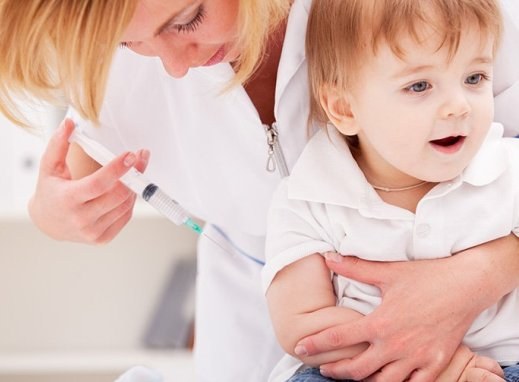How does infection with rubella
Contracting rubella can only be by airborne droplets, by direct and fairly prolonged contact with the ill person. The virus is very unstable and is not retained on the hair, skin or clothing. That is, if there is no direct contact with patients with rubella, to get in communication with his relatives living with him impossible.
Sick person becomes infectious for a week before the appearance of lesions on the skin, and can transmit the virus to a week after their disappearance. The exception to this rule – the so-called "congenital rubella", when a pregnant woman who became ill on rubella, giving birth to a sick child. Newborns with congenital rubella are contagious for about the first six months of life.
How to prevent rubella disease
If the person is not had chicken pox or don't know for sure, if he had in childhood this disease, the most reliable method of protection is vaccination. Women wishing to conceive should be screened for the presence of antibodies to rubella. These antibodies are immunoglobulins of the IgM and IgG groups.
IgM antibodies indicate either the presence of rubella (in case of detection of a large number of them), or not (that is, either the person does not had chicken pox or the disease happened more than 3 months ago). The second case shows the presence of immunoglobulins IgG, or the "group memory" as it is called. That is, if the analysis shows only the presence of IgM antibodies means that the person or are now sick with measles, or who had had measles recently. If you have only IgG, then the person sustained immunity to rubella (it had before). Well, if antibodies are not detected at all – immunity to rubella is to be vaccinated. After vaccination 2-3 months the woman may get pregnant without fear of the disease rubella.
If people do not have immunity to rubella, don't want to be vaccinated, they should avoid contact with patients with rubella. But this method cannot be considered reliable, because, as has been said, the diseased person becomes infectious for a week before the appearance of the classic signs of rubella, that is actually a person does not know that he is dangerous to others. As for children, they are best to vaccinate against rubella at 12 months. Repeated vaccination (revaccination) is carried out at the age of 6 years.
